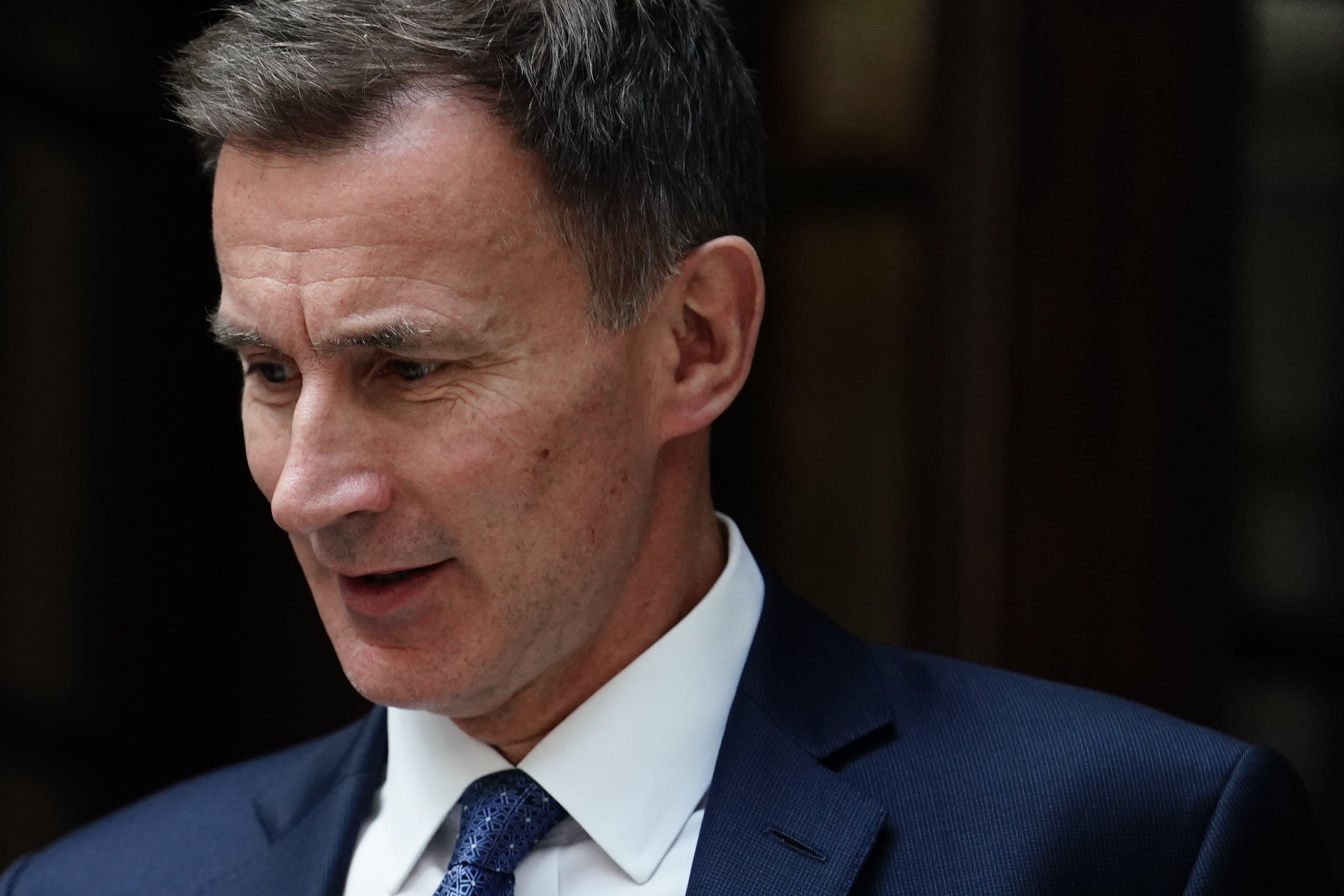Push for more North Sea oil and gas ‘right thing for planet’, Jeremy Hunt says
The Chancellor was challenged over his support for the move when he opposed a gas drilling project in his constituency.

Your support helps us to tell the story
From reproductive rights to climate change to Big Tech, The Independent is on the ground when the story is developing. Whether it's investigating the financials of Elon Musk's pro-Trump PAC or producing our latest documentary, 'The A Word', which shines a light on the American women fighting for reproductive rights, we know how important it is to parse out the facts from the messaging.
At such a critical moment in US history, we need reporters on the ground. Your donation allows us to keep sending journalists to speak to both sides of the story.
The Independent is trusted by Americans across the entire political spectrum. And unlike many other quality news outlets, we choose not to lock Americans out of our reporting and analysis with paywalls. We believe quality journalism should be available to everyone, paid for by those who can afford it.
Your support makes all the difference.Jeremy Hunt has defended the Government’s push to maximise the production of oil and gas, arguing it is “the right thing to do” for UK energy security and the planet.
The Chancellor was challenged over his support for the continued licensing of new North Sea developments when he strongly opposed a gas drilling project in his Surrey constituency on environmental grounds.
The South West Surrey MP in 2022 blasted a Government decision to allow an exploratory gas well to be dug near the village of Dunsfold as “bitterly disappointing and wrong both economically and environmentally”.
And that's why this is the right thing to do for the planet as well as for our energy security
Asked why he then backed oil and gas exploration in the North Sea, Mr Hunt told Channel 4 News on Thursday: “Because these are totally different situations.
“As a constituency MP, I do my job and stand up for constituents who are worried about environmental impact.
“But when it comes to the North Sea, something very profound and important has changed in the last 18 months, which is that we realised that what matters is not just the transition to net zero, but also energy security, and it happens to be a lot more carbon-intensive to import gas than to use our own supply.”
It was put to Mr Hunt that with the private companies that own the North Sea fields selling the oil and gas on the international market, there is no guarantee the supplies will end up in the UK.
He replied: “But we’re far more likely to get them if we’re extracting that gas than if we’re not extracting it.”
Mr Hunt also told Sky News that the UK will remain “a bigger importer of gas” and that while “we’re importing it, it uses three times less carbon to use our own gas (than) to import it from the other side of the world.
“And that’s why this is the right thing to do for the planet as well as for our energy security.”
Prime Minister Rishi Sunak this week announced plans to “max out” the UK’s oil and gas reserves by granting more than 100 new oil and sea gas licences alongside a new carbon capture scheme in north-east Scotland.
He also hinted that the UK’s largest untapped oil field, Rosebank, to the west of Shetland, could be approved despite fierce opposition from environmental campaigners.
Climate-conscious Conservatives have joined campaigners to warn against the move, amid concerns it will hinder efforts to reach net-zero by 2050.
Meanwhile, Mr Hunt echoed Mr Sunak in reaffirming the Government’s commitment to banning the sale of new petrol and diesel cars from 2030.
“I think that deadline is important because it encourages a lot of investment,” the Chancellor told GB News.
“But what the Prime Minister has said is that as we transition to electric vehicles, we need to do so in a way that is proportionate and sensible and takes account of the people who will still be driving vehicles that aren’t electric.
“We’re sticking with 2030, but we’re going to do it in a pragmatic way.”